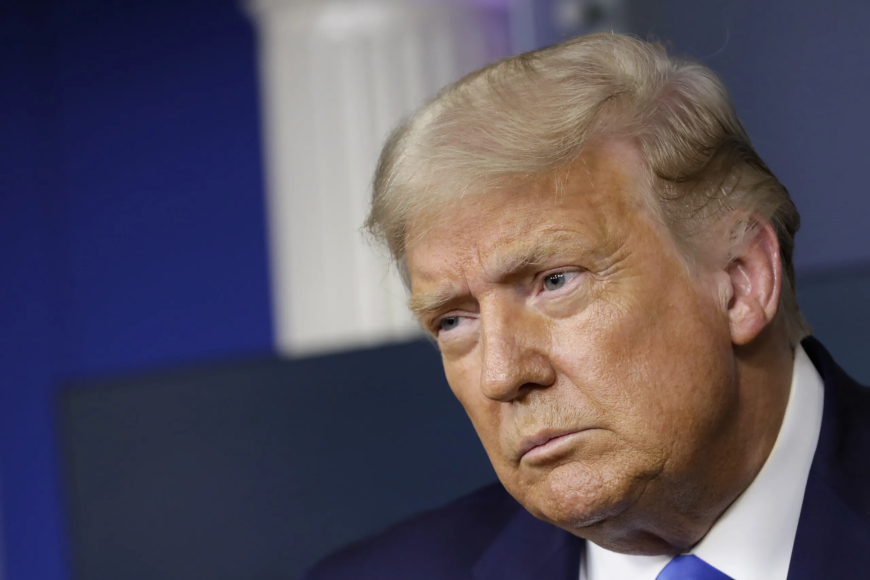Federal Appeals Court Strikes Down Trump Tariffs, Reshaping U.S. Trade Policy
A federal appeals court struck down Trump-era tariffs on August 30, 2025, reshaping U.S. trade policy. The ruling impacts businesses, consumers, and international trade relations.

Washington, D.C. – In a ruling that could reshape the future of American trade relations, a federal appeals court struck down key tariffs enacted during President Donald Trump’s administration. The decision delays further enforcement of those duties and sends ripple effects through U.S. trade policy, leaving businesses and foreign partners uncertain about the road ahead.
According to Reuters, the court’s judgment centers on tariffs imposed on select steel, aluminum, and consumer goods, measures originally justified under national security provisions. The three-judge panel ruled that the executive branch had exceeded its authority, arguing that trade restrictions of this scope required more explicit congressional approval.
A Clash Between Executive Power and Trade Law
The decision underscores a fundamental tension between the executive branch’s expansive use of trade authority and the courts’ interpretation of constitutional limits. While President Trump had defended the tariffs as essential for protecting American industries and jobs, the appeals court found that such measures lacked the legislative foundation required for sustained enforcement.
Legal scholars say the ruling could set a precedent limiting presidential leeway in shaping trade policy unilaterally. “This decision is a reminder that trade regulation remains primarily within Congress’s purview,” said Professor Alan Whitmore, a constitutional law expert at Georgetown University. “The executive may act in emergencies, but sweeping tariffs of this kind stretch that definition.”
Impact on U.S. Businesses and Consumers
For American companies, the ruling offers short-term relief. Manufacturers that rely on imported metals and components had long argued that tariffs raised production costs and weakened competitiveness. Consumer groups also pointed to higher prices on goods ranging from washing machines to electronics.
A report from Statista shows that tariff-related costs added an estimated $1,200 annually per household at the height of enforcement. With the court’s decision halting new duties, some analysts expect modest price reductions in the coming months, though much depends on whether the administration seeks an appeal.
Repercussions for International Trade Relations
The appeals court decision also reverberates abroad. Several U.S. trading partners, including the European Union, Canada, and China, had challenged the tariffs at the World Trade Organization. While diplomatic negotiations had tempered retaliatory measures, uncertainty over U.S. policy strained relationships with allies.
Trade representatives from Europe cautiously welcomed the court’s ruling. “This marks a step toward restoring fair trade practices,” said one Brussels official, who requested anonymity due to ongoing talks.
Yet questions remain. With enforcement suspended, partners are seeking clarity on whether Washington will revert to traditional trade agreements or pursue new negotiations.
Political and Policy Fallout
The ruling presents a political dilemma for the Trump administration. While the President campaigned heavily on reshaping trade policy and protecting domestic industries, the courts have now clipped one of his signature tools.
On Capitol Hill, reaction fell largely along partisan lines. Republican lawmakers argued that the tariffs had served as leverage in securing better trade terms, while Democrats emphasized the strain they placed on U.S. households and small businesses.
Policy analysts suggest the decision could open the door for new bipartisan efforts on trade legislation. “If Congress wishes to grant broader tariff authority to the executive, it will need to act,” said Marcia Lopez, senior fellow at the Peterson Institute for International Economics. “Otherwise, this ruling will limit future administrations from following the same path.”
What Comes Next
The Justice Department is expected to weigh an appeal to the Supreme Court, though officials have not yet issued a formal statement. Should the ruling stand, it may mark the beginning of a new phase in U.S. trade governance, one in which Congress reasserts its role after years of ceding ground to the White House.
For now, American businesses, foreign partners, and consumers await clarity. Whether this decision brings lasting stability or sparks further uncertainty will depend on the next legal and political moves in Washington.
What's Your Reaction?
 Like
0
Like
0
 Dislike
0
Dislike
0
 Love
0
Love
0
 Funny
0
Funny
0
 Angry
0
Angry
0
 Sad
0
Sad
0
 Wow
0
Wow
0








































































